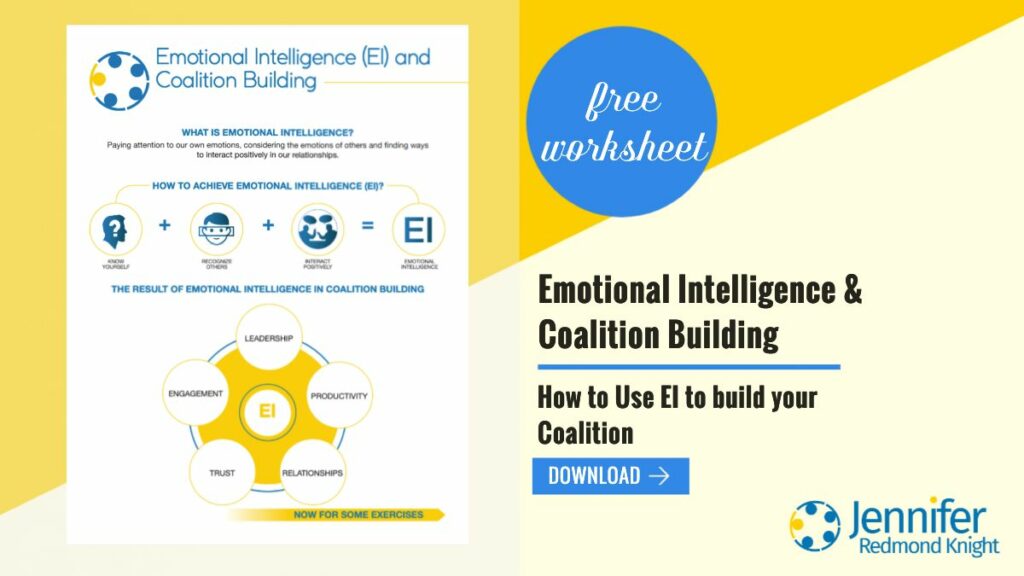Over the past year, I have been slowly reading through Brené Brown’s new book, Atlas of the Heart. In this book, she focuses on labeling, defining and creating a common language around emotions. As we consider applying the concepts of Emotional Intelligence, creating a common language can be particularly helpful in all domains. As we consider self awareness, if we have language to use to describe our own emotions, we can be more effective at naming and understanding them. When we reflect on self management, the ability to put language around our emotions can help us manage those emotions. In our coalition relationships, one of the ways to increase social awareness is to increase our ability to describe and understand specific emotions. And finally, in relationship management, when we work together with others and can speak a common language of emotion, we are able to interact positively with others. Join me as I reflect upon two of the concepts that can be particularly helpful in coalition and other relationships: Compassion and Empathy.
Compassion.
In most coalitions, we are focused on helping others and the term “compassion fatigue” has been commonly used when people find themselves burned out and weary from continuing to help others. In Atlas of the Heart, she emphasizes that compassion is something we do each day and involves action and an understanding of our shared humanity. When we act with compassion we practice loving-kindness, recognize that everyone experiences both strength and suffering and are willing to be present with others where they are. We are able to cultivate compassion when we practice compassion for both ourselves and others. In our coalition work, we have a tendency to want to “fix” or sometimes think we are “better than” others but neither of those are part of this definition of compassion. Compassion is being willing to practice kindness as we listen and learn.
Empathy.
She describes empathy as a tool of compassion. The first step in empathy is being willing to sit with someone’s joy, struggle or any other emotion that they may be experiencing. We practice showing kindness and listening to the other person. Then, we try to understand what someone is feeling, listen to their story and believe them even when their experience is different from our experience with that emotion. In the type of empathy that she describes as a healthy approach to empathy, we focus on understanding and connecting not taking on their emotion as our own. She emphasizes the importance of boundaries in order to truly provide empathy. In our coalition work, we have an opportunity to consistently practice empathy. We can focus on understanding others’ experiences, believing them and showing compassion for them. Yes, this means we can take action (e.g. policy change); however, this does not mean that we need to take on their emotions and experiences as our own emotions and experiences.
If you have not yet read Atlas of the Heart, I highly encourage you to check it out and would love to hear from you about how you are learning and applying the language of emotions and shared human experiences in your coalition.
Also, if you haven’t yet downloaded my Emotional Intelligence and Coalition Building Worksheet, check it out here. This will help you reflect and practice building your Emotional Intelligence skills.

